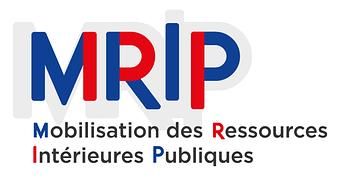







In line with IMF / WB initiatives to support stronger domestic resource mobilization in developing countries, the aim of this webinar is to facilitate a constructive dialogue between those involved in debt policy and in tax policy, so that the strategic coherence between tools can be better integrated into the design and management of these policies.
When interest rates were relatively low, many low and lower middle-income countries, particularly in Africa, were able to access the international financial markets, thereby improving their financing capacity. However, the recent rise in interest rates and the tightening of the market have forced most of these countries to turn to their domestic markets for financing. The increase in the domestic public debt, strengthening the bank-sovereign nexus has raised financial stability issues. Given the difficulty that many of them have in significantly improving the mobilization of their domestic resources, these countries have seen their financing capacity shrink dangerously, especially as local markets are getting close to their stagnation point, making the issue of their financing particularly complex.
Many countries are therefore facing the dual challenge of managing debt sustainability while ensuring adequate revenue generation to fund public services and investments. Thus, rising public debt levels, coupled with the need for robust and resilient revenue systems, are powerful reminders of the importance of strategic fiscal planning.
Medium-Term Debt Management Strategies (MTDS) are designed to help governments borrow at the lowest possible cost with a prudent level of risk. This involves determining the appropriate mix of domestic and external debt, short-term and long-term borrowings, fixed versus floating interest rates as well as the appropriate maturity. Effective debt management can help mitigate the impact of economic shocks, maintain investor confidence, and promote fiscal discipline.
Medium-Term Revenue Strategies (MTRS),in turn, focus on enhancing the efficiency, equity, and sufficiency of the revenue system over a multi-year horizon. This includes broadening the tax base, improving tax compliance, and modernizing revenue administration. An effective MTRS is crucial for mobilizing domestic resources to fund development priorities and reducing dependency on external financing.
The interaction between these strategies is important, yet often overlooked. MTDS and MTRS are interdependent and should be aligned to achieve overall fiscal sustainability. A well-structured MTDS can create a stable macroeconomic environment that supports revenue generation, while a robust MTRS can ensure adequate resources to meet debt service obligations. However, several challenges exist in aligning these strategies in developing countries. These include coordinating policy frameworks across different government departments, managing trade-offs between public debt sustainability, financial stability and public revenue mobilization, as well as between crowding out private spending and investment and mobilizing private savings for public investment.
Explore the frameworks: Provide an understanding of the methodologies and frameworks used to develop MTDS and MTRS.
Assess interaction and policy implications: Examine how these strategies interact and influence each other at the country level / Discuss policy coordination as well as challenges in implementation.
Identify best and bad practices: Highlight best and bad practices and identify what could contribute to effective integration of MTDS and MTRS, such as strong governance frameworks, stakeholder engagement, and international support.
Facilitate dialogue: Stimulate a dynamic discussion among policymakers, experts, and academics on the synergies and challenges of aligning debt and revenue strategies.
Thordur JONASSON, Deputy Division Chief in the Debt Capital Markets Division of the Monetary and Capital Markets Department, IMF
Katherine BAER - Deputy Director, Fiscal Affairs Department, IMF
Habasso TRAORE - Director of Public Finance and Internal Taxation, WAEMU Commission
Judicaël AKOUERE, Director of Debt, Caisse congolaise d'amortissement, Ministry of Economy and Finance, Congo
Philippe GUYONNET-DUPERAT, Secretary General of the Paris Club, Directorate-General of the French Treasury and Head of International Debt and Paris Club Secretariat
Aurélien MALI - Vice President, Senior Credit Officer, Sovereign Risk Group Moody's Raitings
The panel was moderated by Bruno CABRILLAC, Managing director at Ferdi.